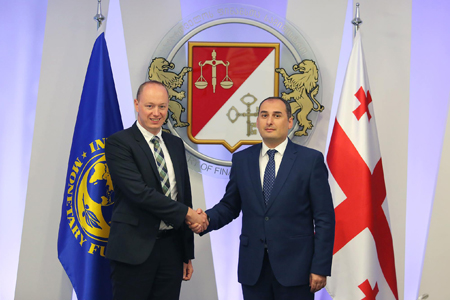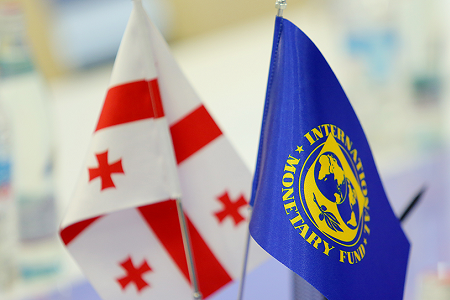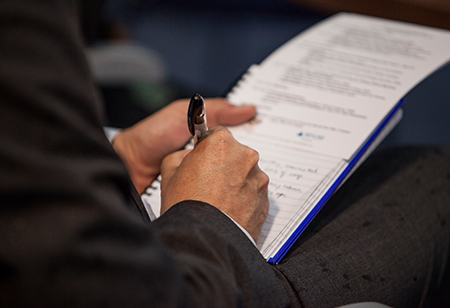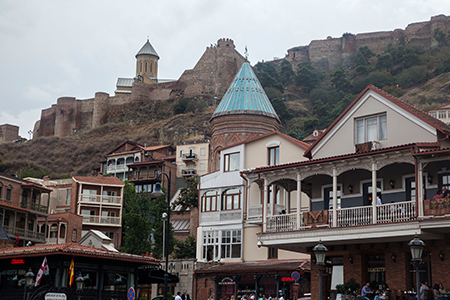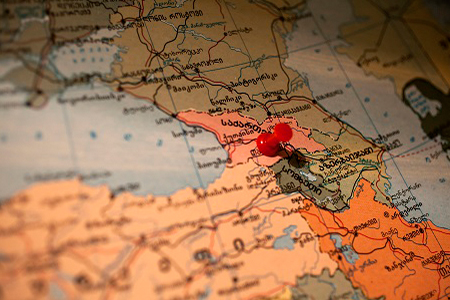Challenges of building the modern Georgian economy
IMF high official shapes future of Georgia with students
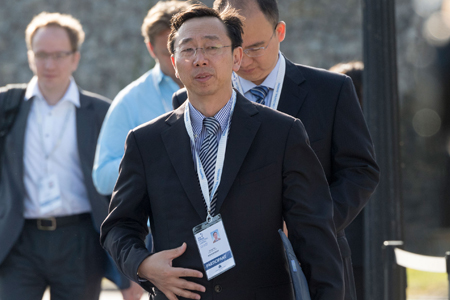
Deputy Managing Director of International Monetary Fund (IMF) Tao Zhang is paying his official visit to Georgia’s capital of Tbilisi.
During his visit Zhang found time to meet students of Tbilisi State University where he talked about how to build modern Georgian economy.
It is important to come together to discuss the challenges of building a modern Georgian economy. I always take great pleasure meeting with students during my work. This group represents Georgia’s future and should have a voice in today’s discussion… When you leave university, you will be taking on responsibilities that, in time, will help determine your country’s future. So, I would like to outline some of these issues today,” said Zhang.
Before talking about Georgia’s recent economic performance or looking to the future, Zhang made a brief overview of the global economy.
He said the IMF had recently upgraded its forecast for world growth to 3.5 percent this year and 3.6 percent in 2018. That is up from 3.1 percent in 2016.
The IMF projects that Georgia will grow about 3.5 percent this year, up from an average of 2.8 percent over the past two years. This is largely supported by investment and private consumption. In the medium term, we see Georgia returning to the 5.5 percent growth after the recent downturn. But that will depend on the continuation of recent policies that have created favourable conditions for private investment, productivity growth, and greater export competitiveness. The environment for doing business is also improving—as the World Bank recently stated,” said Zhang.
Georgia’s Challenges
Zhang highlighted some of the key challenges facing Georgia.
First, is the narrow export base. Traditional agriculture and established industries such as metals will not be enough to support Georgia’s exports in a rapidly changing global economy. New sectors are emerging, especially tourism and transportation. But you are competing against countries that are pursuing the same goal”.
Recent free trade agreements should help to boost economic diversification by opening new markets. But that alone won’t be enough. Mobilising domestic savings to boost investment will also be important to support more balanced growth,” said Zhang.
He named job market as the second challenge, where unemployment and under-employment remain at high levels.
Almost half of your country’s labour force is engaged in agriculture. Too many people are counted among the long-term unemployed. This problem contributes to the wide inequality in Georgian society. Further reforms are needed to promote more inclusive growth,” he said.
 Tweet
Tweet  Share
Share

